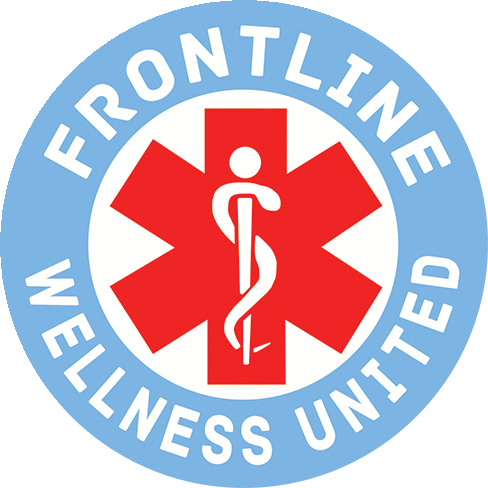Frontline Wellness United is committed to the wellness of non-violent activists working towards social, environmental and civil justice. As an international nonprofit medical-aid society we fulfill a vital need amongst these often underserved frontline communities. What became clear to us early on in this work is that activists don’t always think of themselves as activists. Sometimes, people are thrown into situations where fighting for their Universal Human Rights is linked directly to their survival. This is very much the case of the migrants from South America who are gathered on the other side of our nation’s southern border waiting to apply for asylum.
When I was your enemy by Joel Preston Smith
A friend asked me a while back if I thought it was true that some Morton County Sheriff’s Deputies had resigned over the treatment of protestors at Standing Rock, during the Dakota Access Pipeline protests in North Dakota last year.
I said I thought it was possible, because I used to stand on their side of the line. The reason I stepped across to the other side 27 years ago has a lot to do with why I now work with Frontline Wellness United, which provides healthcare for activists and nonviolent civil resistance movements. I wasn’t a sheriff’s deputy. I was a soldier at the Presidio of San Francisco Army base — a journalist, but also a riot-control troop.
Partnering with Ohio State University's College of Social Work
We’re excited to announce a new partnership with the Ohio State University College of Social Work. Frontline and the college will work together to create a comprehensive support system for whistleblowers, social-justice advocates and nonviolent civil resistance movements in the U.S. and abroad.
On the rise of drone warfare, and the 50th anniversary of Martin Luther King Jr.'s assassination
by Lisa Ling
"On April 4, 1968, civil rights leader Martin Luther King, Jr. was assassinated as he stood unsuspectingly on his motel balcony in Memphis, Tennessee. The cowardly murderer targeted King from a distance, hiding in a bathtub while he aimed his rifle out the bathroom window. Just like that—a man whose life revolved around speaking truth to power—was targeted and killed. Fifty years later, we must honor Dr. King’s legacy by grappling with our own hypocrisy around targeted killing."
In this Instick essay, Lisa Ling, drone-warfare whistleblower and Frontline interim Board member, considers how Martin Luther King Jr. might have reacted to indiscriminate killings of civilians around the globe under the the U.S. drone program, were he alive today.
Kenya Bound
Emma Hall is a photojournalist from Enterprise, Oregon, and a volunteer with Frontline Wellness United. She arrived in Kenya Jan. 29 to cover humanitarian concerns (primarily focused on the Kenyan government’s mistreatment of activists and protesters).
This is a short introduction to her work (and some of her motivations for doing it).
Emma got her first real taste for photojournalist in September of 2016, when she spent three weeks photographing in the three resistance camps at the Dakota Access Pipeline protests in North Dakota. She's done some travel-related photography in the United Kingdom, Norway and Iceland, but Kenya will be her first experience in a society that's vastly different than Western cultures (and one that's in upheaval from political unrest, widespread dissent against government corruption and police violence—including frequent extrajudicial killings—against the populace).
Because of the blood on the tracks
Overcoming Mental Health Challenges as Movement Leaders and Activists
by Joel Preston Smith, from Minds of the Movement (International Center on Nonviolent Conflict)
Human rights activist Beatrice Karore was five months pregnant when she was shot twice in the hips with rubber bullets and beaten by police Oct. 14, 2012, after a protest against lawlessness in Mathare, a shantytown in Nairobi, Kenya.
Two hours earlier, Karore stood on a dirt road that transects the slum, staring at the bodies of two young men who’d been knocked off their motorcycle and clubbed to death. A crowd was gathering—angry, vocal, demanding that police take action. Karore, who was known as a social justice organizer and had made something of a name for herself by running for (but losing) a seat on the Nairobi County Assembly the preceding December, led the procession to the Humura Police Station in Nairobi.
Traditional Healers Need Apply
We respect traditional health practitioners not just because we want to be ‘inclusive,’ but because they’re effective.
Research published this September in the journal "Culture, Medicine, and Psychiatry," for example, notes that traditional practitioners are “crucial in reducing global mental health challenges."








